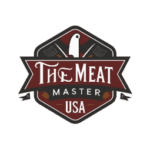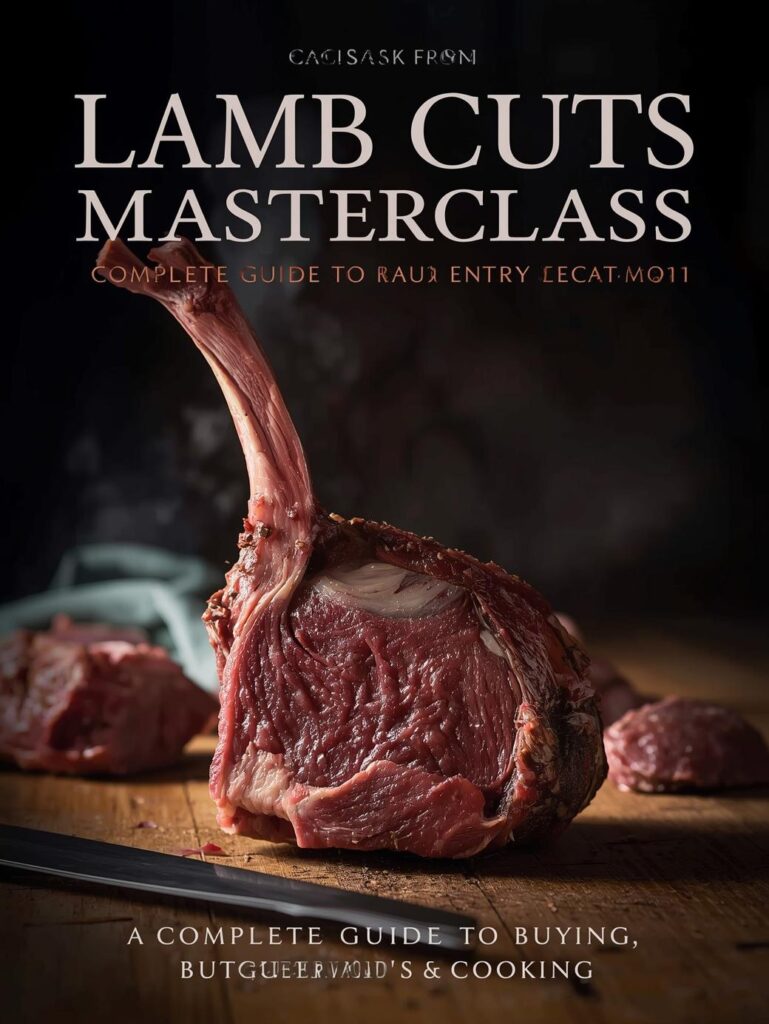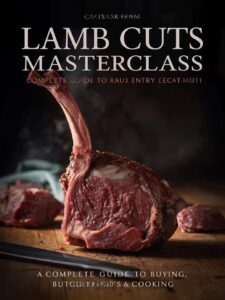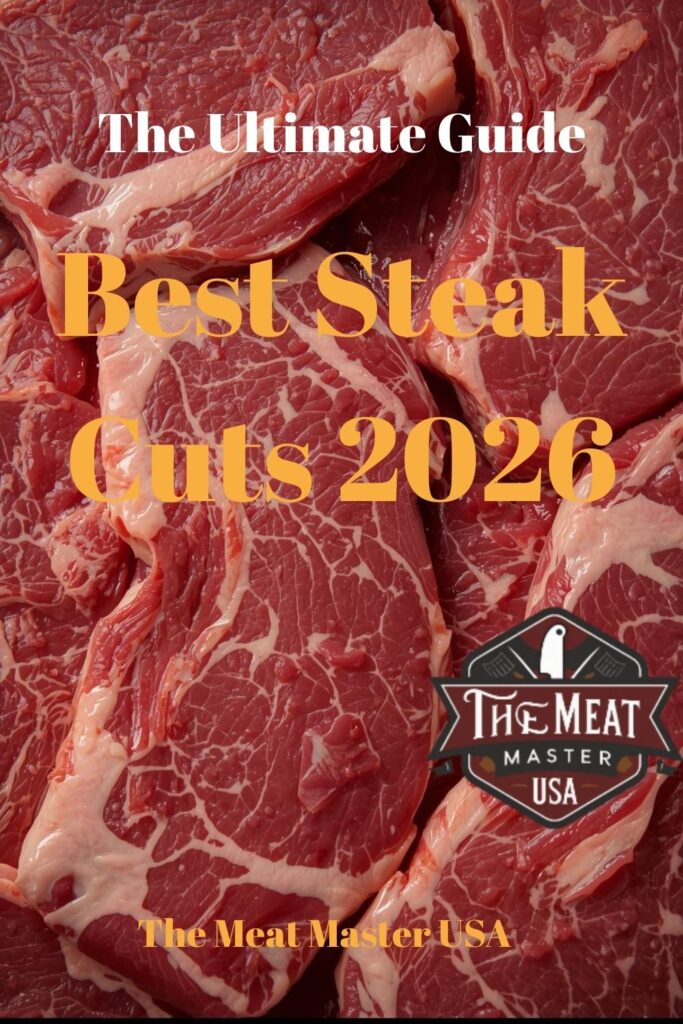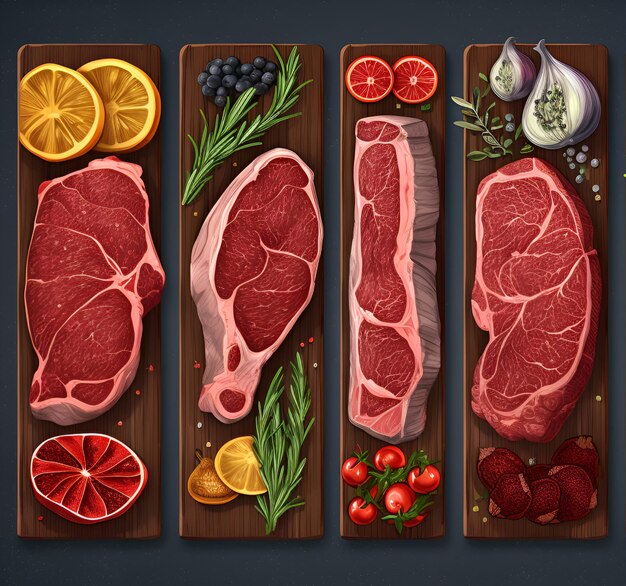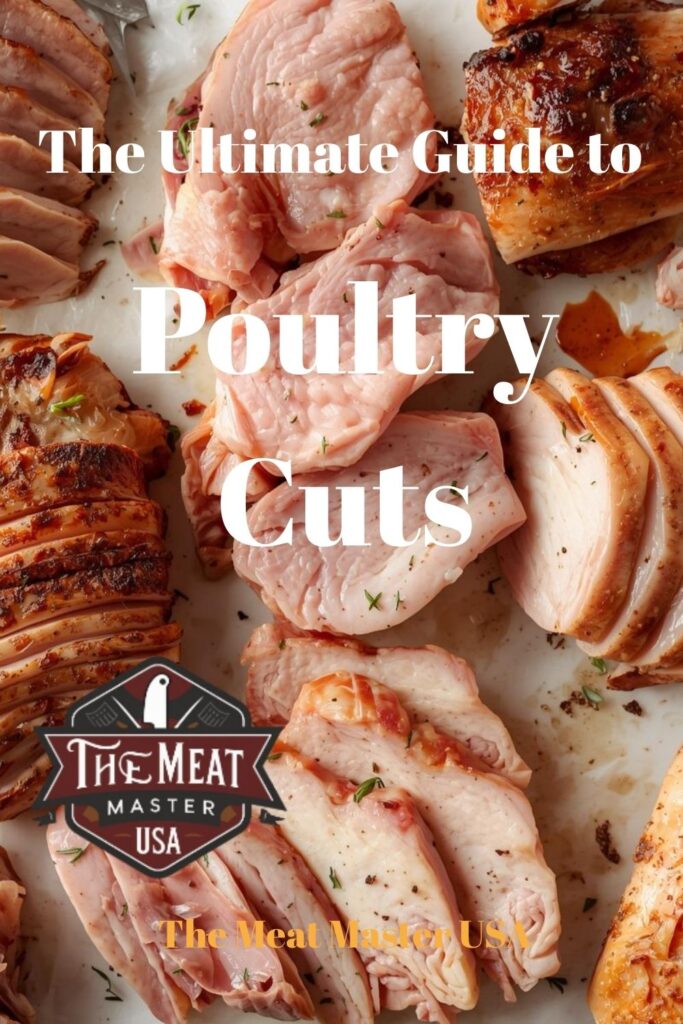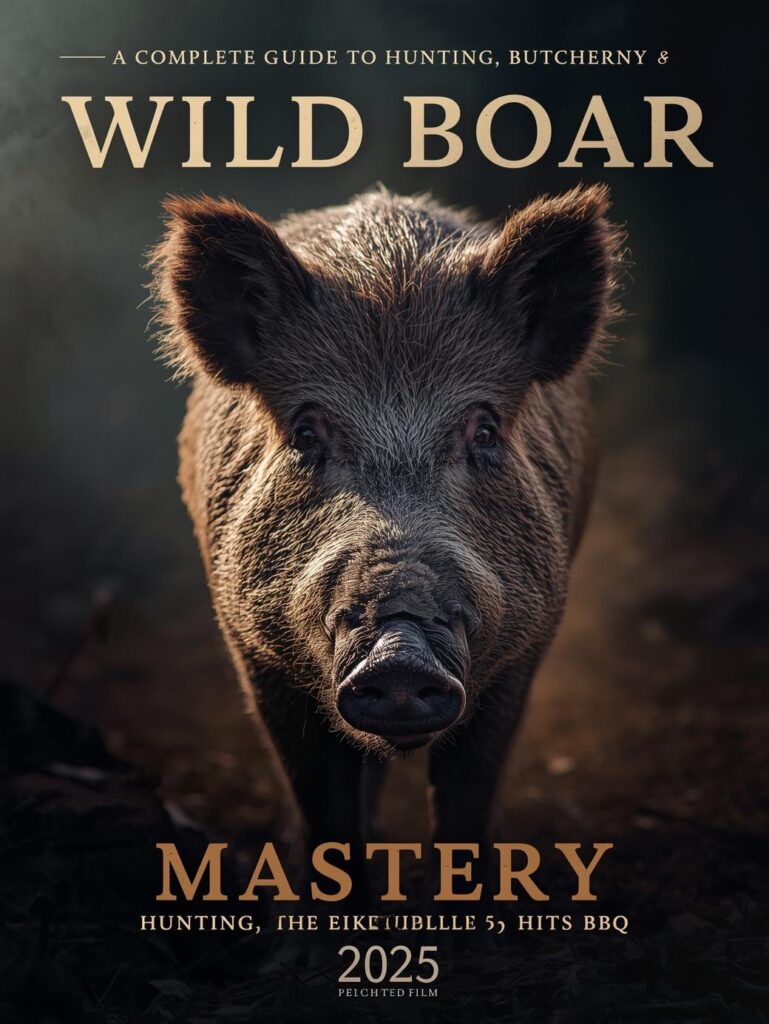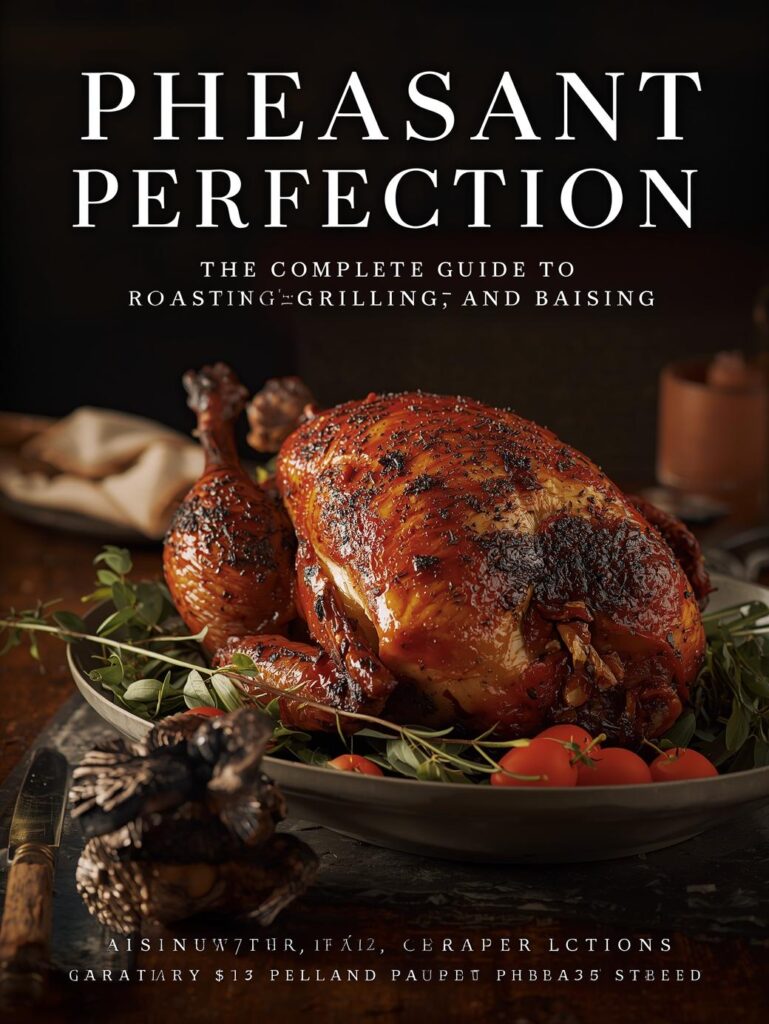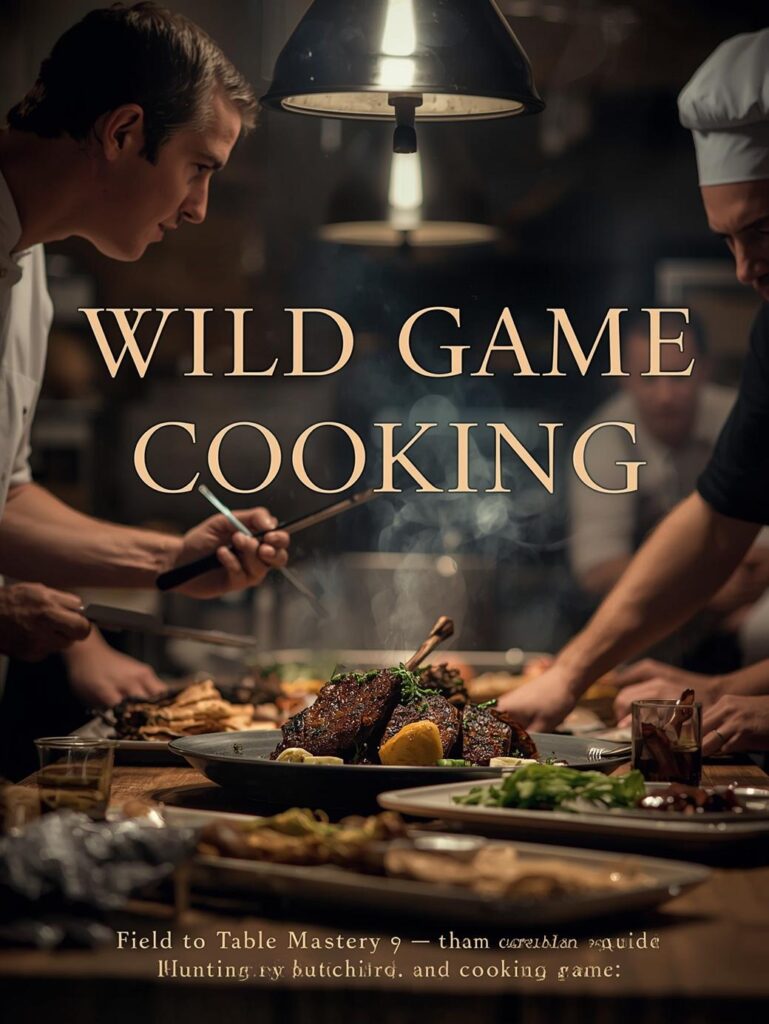Expert’s Note: Lamb is the final frontier for many meat lovers—mysterious, intimidating, but incredibly rewarding. This guide bridges the gap between our comprehensive Beef Cuts Explained and Pork Cuts Guide. Understanding lamb unlocks a world of flavor that’s both ancient and sophisticated. From the mountains of Greece to the pastures of New Zealand, lamb represents tradition, celebration, and culinary artistry.
Lamb Cuts Masterclass: Your Complete Guide to Buying, Butchering, and Cooking
“Lamb is the conversation between earth and fire. It carries the taste of the terrain it grazed on—herbs, grasses, minerals—and transforms in the heat into something both primal and elegant. Where beef is bold and pork is sweet, lamb is complex. It’s not just another red meat; it’s a journey through geography, tradition, and the very essence of pastoral life.”
Lamb Cuts Masterclass: Complete Guide to Buying, Butchering & Cooking
Download the Lamb Cuts & Cooking Methods Matrix - Your Quick Reference Guide
Welcome to the world of lamb—the most misunderstood and underappreciated meat in American cooking. While beef and pork dominate our grills, lamb remains a mystery to many, often relegated to special occasions or ethnic restaurants. This guide will demystify every cut, teaching you how to select, prepare, and cook lamb with the confidence of a Greek grandmother and the precision of a French chef. Prepare to discover why lamb has been the centerpiece of celebrations for thousands of years.
🎯 UNDERSTANDING LAMB: THE FLAVOR PROFILE
Before we explore the cuts, you must understand what makes lamb unique.
⚙️ The Lamb Flavor Spectrum
What Makes Lamb Taste Like Lamb
- Age Matters Most: The single biggest factor in lamb flavor is age. “Genuine lamb” is under 12 months, “Spring lamb” is 3-5 months, and “Hothouse lamb” is 6-8 weeks. Older sheep become “mutton” (1-2 years) or “hogget” (1 year), with progressively stronger flavors.
- Fat Composition: Lamb fat has a different fatty acid profile than beef or pork. It contains branched-chain fatty acids that create that distinctive “lamb” flavor many Americans find challenging but enthusiasts cherish.
- Diet and Terroir: Lamb is the wine of the meat world. Grass-fed lamb from New Zealand tastes different from grain-finished American lamb. Salt-marsh lamb from Wales (the famous “Salt Marsh Lamb”) has a unique mineral quality.
- The “Gamey” Myth: What many call “gamey” is actually the complex flavor profile of well-raised lamb. Proper handling, cooking, and pairing can balance these flavors beautifully.
🎯 Lamb vs. Beef: The Fundamental Differences
🐄 Beef Characteristics
- Bold, straightforward beefy flavor
- Heavy, dense texture
- Rich marbling (intramuscular fat)
- Benefirs from strong seasoning
- Best cooked Rare to Medium-Rare
🐑 Lamb Characteristics
- Complex, earthy, mineral flavor
- Tender, fine-grained texture
- External fat cap (needs rendering)
- Prefers herbaceous, aromatic seasoning
- Best cooked Medium-Rare to Medium
🔪 THE LAMB BUTCHER’S MAP: CUTS EXPLAINED
Navigate the lamb carcass like a professional butcher.
🥩 Primary Lamb Cuts Breakdown
From Nose to Tail Understanding
- Shoulder (Front Quarter): The workhorse of the lamb. Heavily exercised, rich with connective tissue, and incredibly flavorful. This is your low-and-slow champion, perfect for braising, roasting, or pulling. Contains the neck, shoulder roast, and shoulder chops.
- Rack (Rib Section): The crown jewel. Incredibly tender with perfect fat coverage. This is where rib chops and the magnificent crown roast come from. The fat cap needs careful rendering, but rewards with unmatched succulence.
- Loin (Middle): The tenderloin and strip area. The most tender part of the lamb, with a mild flavor. Loin chops are the “T-bones” of the lamb world, while the boneless loin roast is elegant and lean.
- Leg (Hind Quarter): Large, lean, and versatile. Can be roasted whole, butterflied for grilling, or cut into steaks. The sirloin and shank portions offer different textures and applications.
- Breast & Flank: The belly of the lamb. Fatty, flavorful, and perfect for slow cooking or grinding. When rolled and tied, it becomes a delicious roast. Riblets are cut from this section.
- Shanks (Front & Rear): The ultimate braising cut. Full of collagen that melts into rich gelatin during slow, moist cooking. The marrow in the bone adds incredible depth to sauces.
📊 The Ultimate Lamb Cuts Cooking Matrix
🎯 Match Every Cut to Its Perfect Cooking Method
| Cut | Best Cooking Methods | Target Internal Temp | Key Preparation Tip | Flavor Profile |
|---|---|---|---|---|
| Rack of Lamb | Roast, Reverse Sear | 130-135°F (Med-Rare) | French the bones; score fat cap | Rich, Buttery, Elegant |
| Lamb Chops (Loin) | Grill, Pan Sear | 125-130°F (Rare-Med Rare) | Quick cook; herb crust | Mild, Tender, Delicate |
| Leg of Lamb | Roast, Grill, Smoke | 135-140°F (Medium) | Butterfly for even cooking | Lean, Beefy, Versatile |
| Shoulder/Neck | Braise, Slow Roast, Pull | 195-205°F (Falling Apart) | Low & slow; break down collagen | Rich, Gamey, Unctuous |
| Lamb Shanks | Braise, Slow Cook | 195-205°F (Probe Tender) | Sear first; braise with aromatics | Gelatinous, Rich, Deep |
| Ground Lamb | Burgers, Meatballs, Kofta | 160°F (Well Done) | Mix with breadcrumbs for binding | Bold, Aromatic, Versatile |
| Lamb Breast | Braise, Slow Roast, Grill Low | 195-205°F (Tender) | Roll and tie; render fat slowly | Fatty, Rich, Comforting |
🔥 COOKING METHODS MASTERED FOR LAMB
Lamb requires specific techniques to honor its unique qualities.
🎪 High-Heat Methods for Tender Cuts
Grilling, Searing, and Roasting
- The Reverse Sear for Rack of Lamb: Cook at 275°F until 115°F internal, then sear in a blazing hot pan or grill. This gives you perfect edge-to-edge doneness and a beautiful crust. Rest to 130°F.
- Grilling Lamb Chops: Use a two-zone fire. Start over direct heat to render the fat and create crust, then move to indirect to finish cooking. Baste with herb butter during the last minute.
- Butterflied Leg of Lamb: Open the leg like a book, remove excess fat, and marinate aggressively. Grill over medium-direct heat, turning frequently. The increased surface area allows for better flavor penetration and even cooking.
- The Herb Crust Technique: For roasts, create a paste of fresh herbs (rosemary, thyme, mint), garlic, and Dijon mustard. Apply after searing to create a flavorful crust that doesn’t burn.
⏳ Low-&-Slow Methods for Tough Cuts
Braising, Smoking, and Pulling
- Lamb Shoulder for Pulling: Treat it like pork shoulder. Rub with Mediterranean spices, smoke at 250°F until probe-tender (195-205°F), about 6-8 hours. The collagen-rich meat becomes incredibly succulent.
- Classic Lamb Shank Braise: Brown shanks deeply, then simmer in red wine, stock, and aromatics for 2-3 hours until falling off the bone. The connective tissue transforms into rich gelatin.
- Smoked Leg of Lamb: Inject with garlic-herb broth, smoke at 275°F to 140°F internal. The smoke complements lamb’s earthy notes beautifully. Rest for 30 minutes before slicing.
- Lamb Neck Pot Roast: The most underrated cut. Brown heavily, then slow-cook with root vegetables until the meat shreds with a fork. Incredible flavor for minimal cost.
🧂 THE LAMB SEASONING COMPENDIUM
Lamb loves bold, aromatic flavors that complement its richness.
🌿 Classic Herb Pairings
The Timeless Combinations
- Rosemary & Garlic: The undisputed king. Fresh rosemary and garlic penetrate the fat and meat, creating classic flavors.
- Mint & Lemon: Not just for sauce! Fresh mint in marinades or rubs brightens the rich flavor. Lemon zest cuts through the fat.
- Oregano & Thyme: The Greek tradition. Dried Greek oregano with fresh thyme creates authentic Mediterranean character.
- Dill & Fennel: Surprisingly brilliant with lamb. The anise notes of fennel complement the gaminess beautifully.
- Sage & Juniper: For robust cuts like shoulder. Earthy sage and piney juniper berries stand up to strong flavors.
🌍 Global Flavor Profiles
International Inspiration
- Moroccan: Cumin, coriander, cinnamon, paprika. Warm spices that complement without overwhelming.
- Indian: Garam masala, turmeric, ginger, cilantro. Complex spice blends that transform the meat.
- Middle Eastern: Sumac, baharat, parsley, pine nuts. Bright, tangy, and nutty flavors.
- Argentinian: Chimichurri—parsley, oregano, garlic, red wine vinegar. The acid cuts through richness.
- French: Herbes de Provence, Dijon mustard, shallots. Elegant and refined.
🚨 LAMB TROUBLESHOOTING GUIDE
🎯 Solving Common Lamb Cooking Problems
| Problem | Symptoms | Cause | Solution |
|---|---|---|---|
| Too Gamey | Overpowering mutton flavor | Older animal; improper fat rendering | Choose younger lamb; score and render fat cap thoroughly; use acidic marinades |
| Tough, Chewy | Rubbery, hard to chew texture | Overcooked tender cuts; undercooked tough cuts | Use thermometer; match method to cut; slice against the grain |
| Fat Won’t Render | Chewy, unrendered fat cap | Heat too low; not scored; cooking too fast | Score fat deeply; start with medium heat to render, then increase to sear |
| Burnt Herbs | Bitter, charred herb coating | Herbs applied before high-heat cooking | Apply herb crust after searing; use hardy herbs (rosemary, thyme) |
| Dry Meat | Lacks juiciness; mealy texture | Overcooked; not rested; lean cut cooked too hot | Cook to proper temp; rest adequately; choose fattier cuts for high heat |
🏁 EMBRACING THE LAMB JOURNEY
Lamb is not just another meat—it’s a culinary adventure that connects you to ancient traditions and global flavors. The initial intimidation gives way to discovery, and what once seemed foreign becomes familiar and beloved.
Start your journey with a simple rack of lamb or some loin chops. Master the basic techniques of rendering the fat and cooking to the perfect temperature. Then gradually explore the more complex cuts—the rich shoulder, the gelatinous shanks, the flavorful breast. Each cut tells a different story and offers a unique experience.
Remember that lamb rewards patience and respect. It asks for your attention to detail—the proper scoring of fat, the thoughtful seasoning, the precise cooking temperature. In return, it gives you some of the most memorable meals of your life.
Your path to lamb mastery begins with a single chop. Then a roast. Then a braise. Soon you’ll be the person friends and family turn to for Easter leg of lamb, Moroccan-inspired feasts, and perfectly grilled chops. The journey is as rich as the meat itself.
Start with the king of lamb cuts – our complete rack of lamb mastery guide
Continue Your Meat Mastery Journey: Explore our complete library of cut guides.
